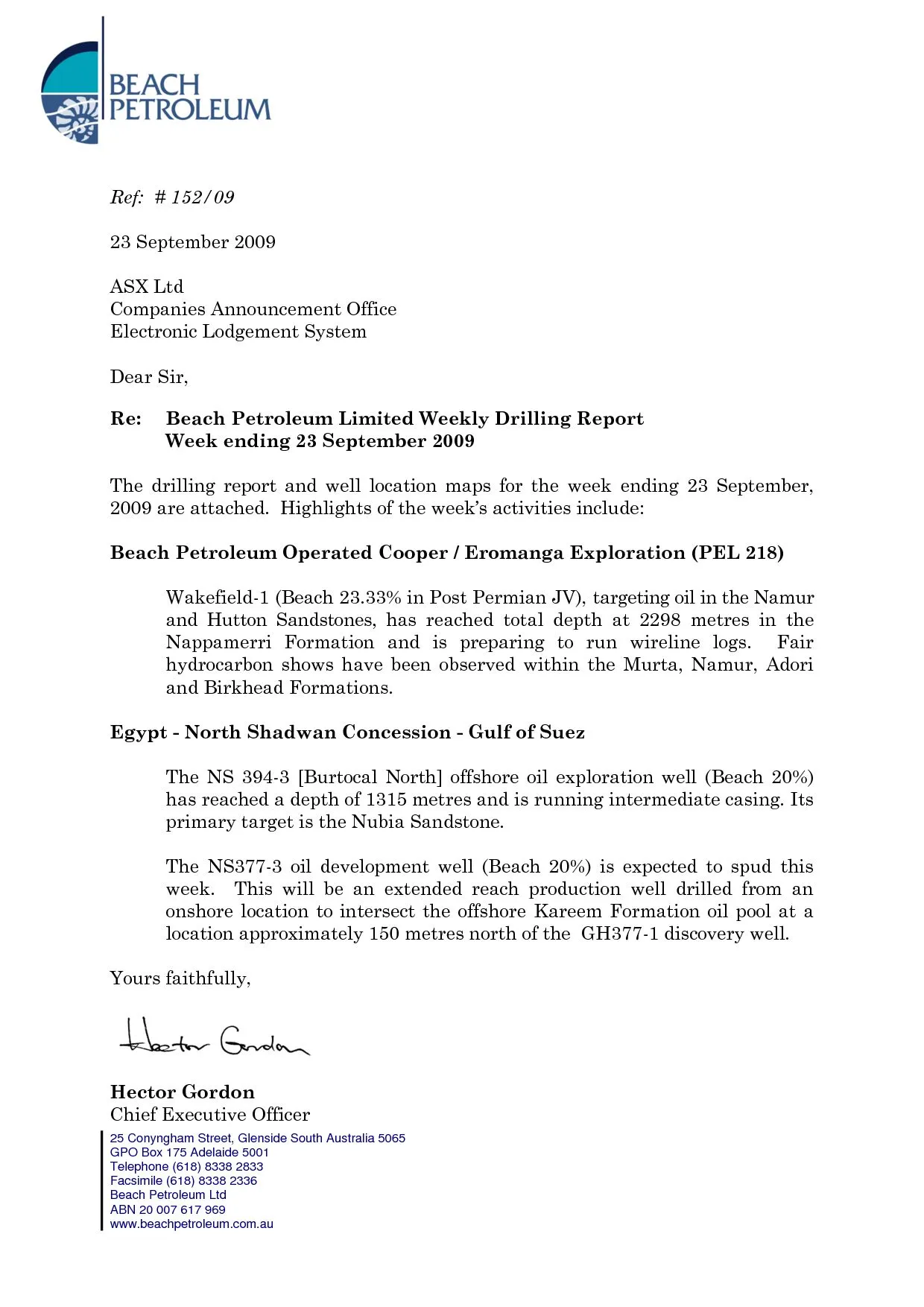Your cover letter is your first chance to make a strong impression on a potential employer. While the body of your cover letter showcases your skills and experience, the closing is your final opportunity to leave a lasting impact. It’s not just about saying goodbye; it’s about reinforcing your value and encouraging the reader to take the next step. Mastering the art of closing a cover letter can significantly boost your chances of landing an interview and ultimately, the job. This guide offers top tips to help you nail the cover letter closing.
Why Your Cover Letter Closing Matters
The closing of your cover letter is often overlooked, but it plays a crucial role in the overall impact of your application. It’s the last piece of information the hiring manager reads, and it can significantly influence their perception of you as a candidate. A well-crafted closing can reinforce your key selling points, express your enthusiasm, and encourage the reader to take the next step – scheduling an interview. It’s your final opportunity to reiterate why you are the best fit for the role.
The Significance of a Strong Closing
A strong closing acts as a powerful summary of your key qualifications and the value you bring to the company. It’s where you solidify your argument for why you are the ideal candidate. This is where you can leave a lasting impression and encourage the hiring manager to remember you long after they finish reading your cover letter and resume. A poorly written or generic closing can undermine the entire application and leave the employer with a negative impression, potentially leading to your application being overlooked. It’s critical to use this space wisely.
How a Strong Closing Boosts Your Chances
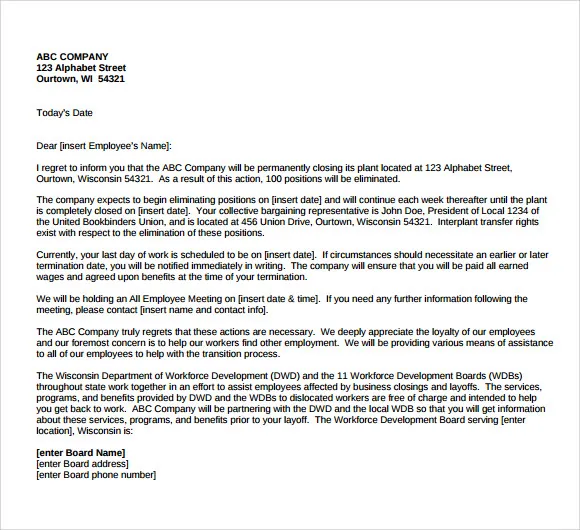
A well-crafted closing does more than just wrap up your letter. It can actively improve your chances of getting an interview. By expressing enthusiasm, demonstrating your understanding of the role, and including a clear call to action, you make it easy for the hiring manager to take the next step. A strong closing also shows your attention to detail and your commitment to the application process, qualities that are highly valued by employers. This section ensures you are remembered and considered for the position.
5 Tips for Closing Your Cover Letter
Expressing Enthusiasm and Interest
Letting your enthusiasm for the role and the company shine through is crucial. Show the hiring manager that you are genuinely excited about the opportunity and interested in the organization. Use phrases like “I am very excited about the prospect of…” or “I am particularly drawn to…” This conveys a positive attitude and demonstrates that you are invested in the role. Make sure your enthusiasm feels genuine and isn’t just a generic statement; tailor it to the specific job and company.
Demonstrating Your Understanding of the Role
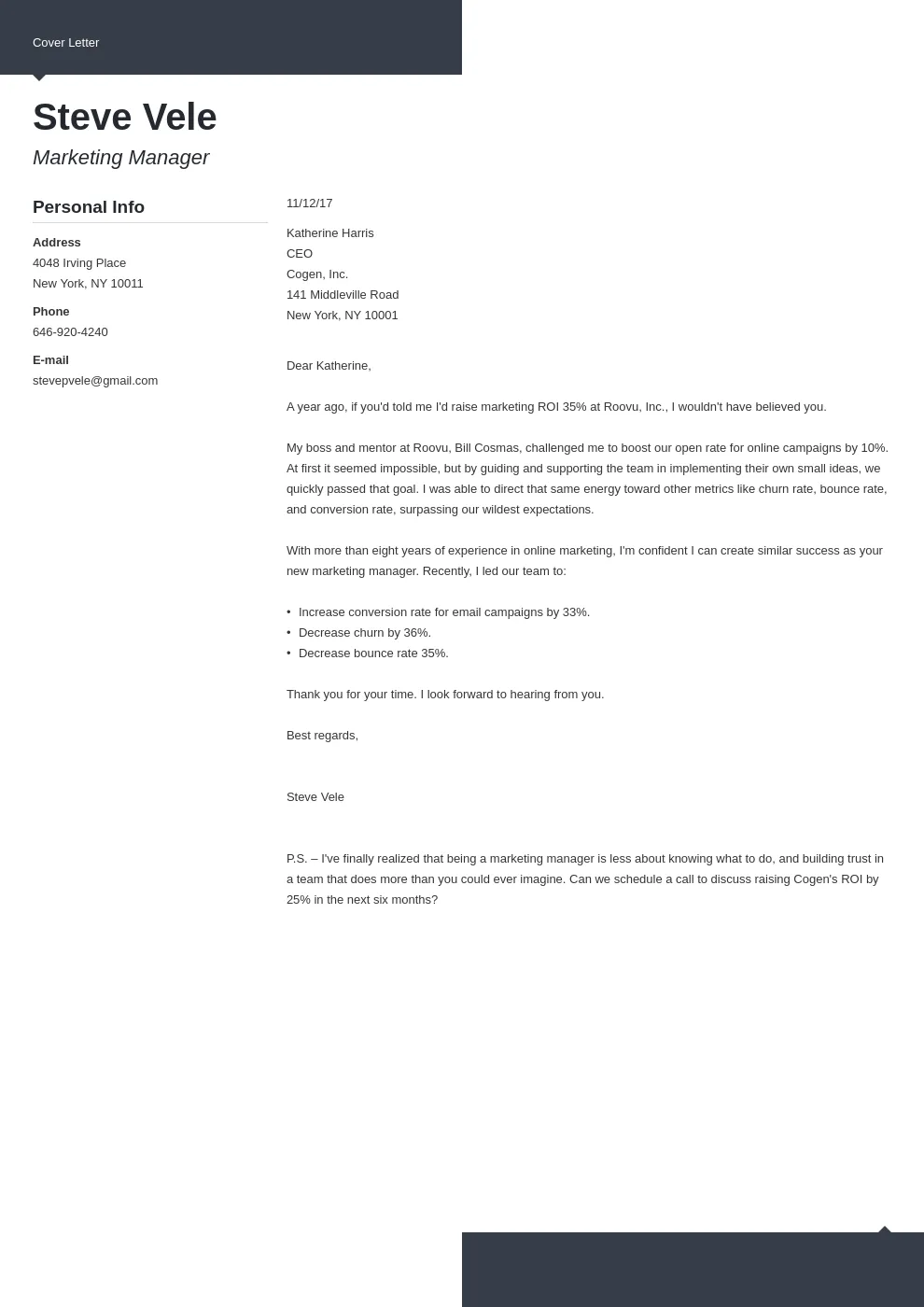
Use the closing to briefly reiterate your understanding of the job requirements and how your skills and experience align with them. Mentioning specific aspects of the role that you find particularly appealing or where you believe you can make a significant contribution shows that you’ve done your research and that you understand what the company is looking for. It demonstrates a thoughtful approach to the application process.
Restating Your Key Qualifications
Remind the hiring manager of your key qualifications and how they are relevant to the position. Briefly highlight your most impressive achievements and skills again, but avoid simply repeating what you’ve already written. Instead, summarize your key strengths and how they can benefit the company. This strategic recap reinforces your value and leaves a lasting impression. Make sure to tailor this section to the specific requirements outlined in the job description.
Adding a Clear Call to Action
Don’t leave the hiring manager wondering what to do next. Provide a clear call to action. This could be as simple as stating that you look forward to hearing from them soon or indicating your availability for an interview. Avoid being passive; take the initiative and express your interest in moving forward in the hiring process. The call to action should be concise, professional, and focused on the next steps.
Proofreading and Polishing
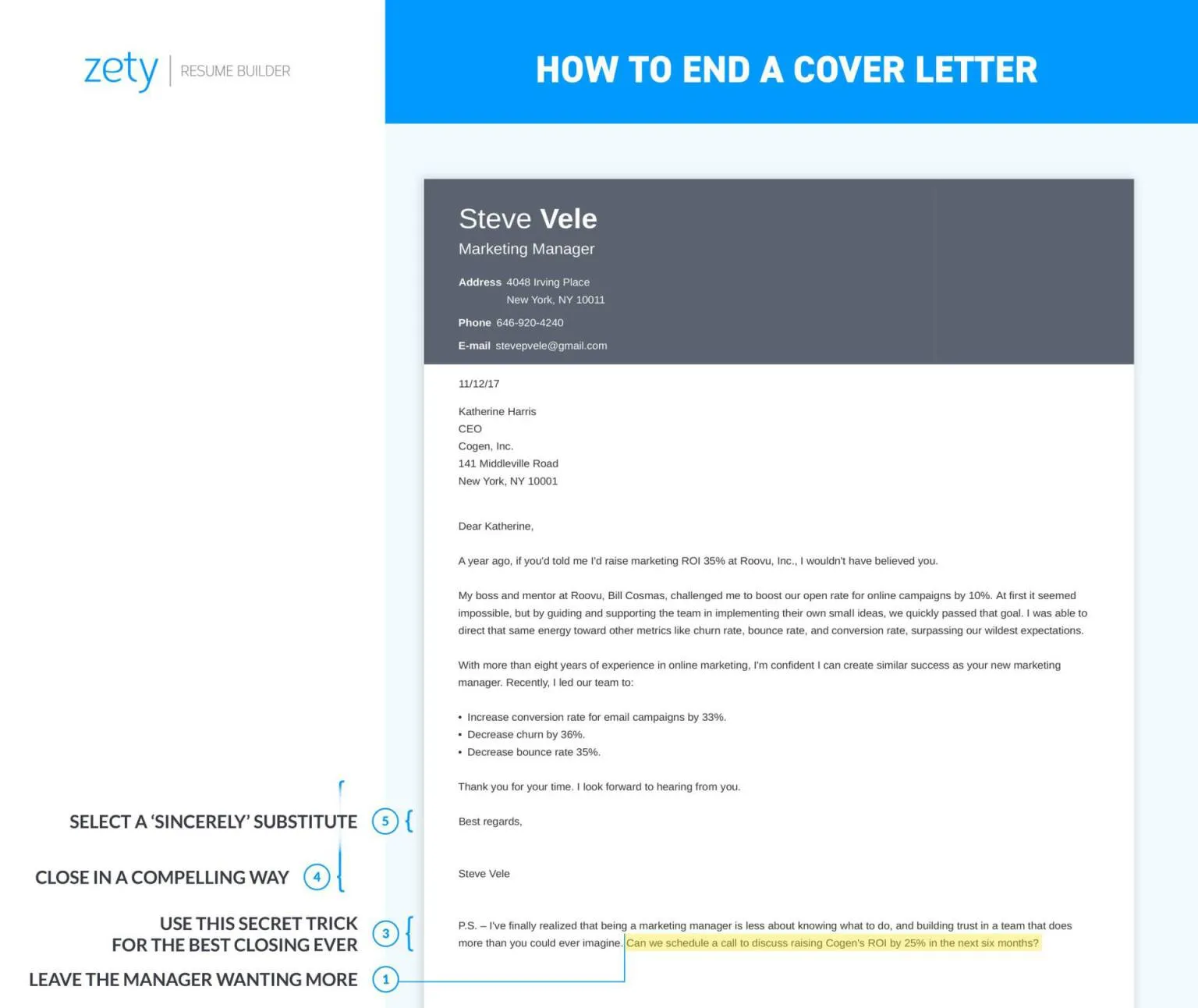
Proofread your entire cover letter carefully, paying close attention to the closing. Ensure there are no grammatical errors, typos, or formatting inconsistencies. The closing is your final statement, and any mistakes can damage your credibility. Read the letter aloud to check for flow and clarity. Ask a friend or career advisor to review your cover letter and provide feedback. Attention to detail is critical.
Examples of Effective Cover Letter Closings
Closing for Entry-Level Positions
For entry-level positions, focus on enthusiasm and your eagerness to learn. Example “I am very enthusiastic about the opportunity to learn and grow within your company. I am eager to discuss how my skills and passion for [industry] can contribute to your team. Thank you for your time and consideration. I look forward to hearing from you soon.”
Closing for Mid-Career Professionals
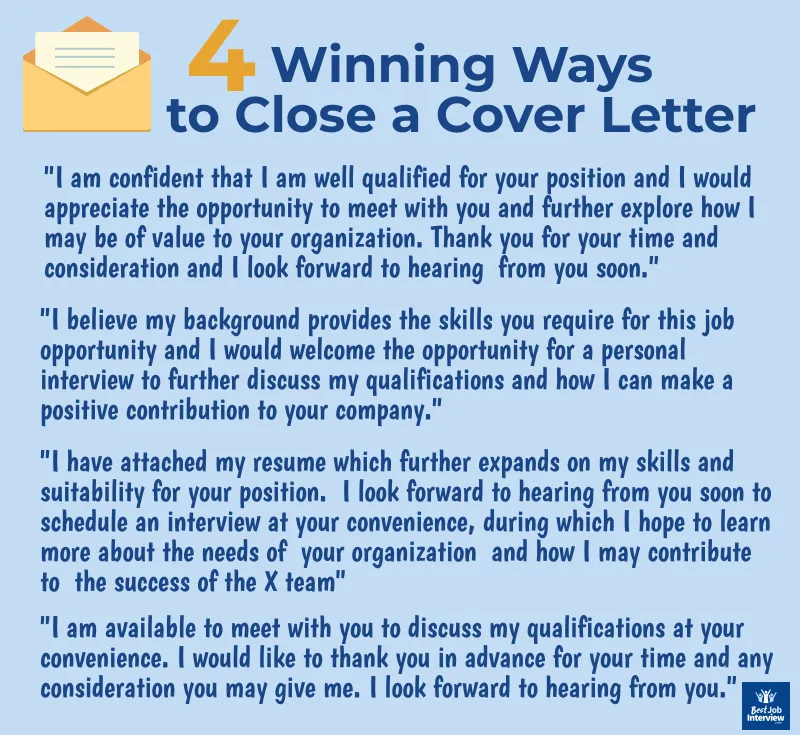
Highlight your accomplishments and emphasize how you can solve the company’s problems. Example “With my proven track record in [area], I am confident I can make a significant contribution to [Company Name]. I am eager to discuss how my skills in [specific skill] can help meet your goals. Thank you for considering my application. I am available for an interview at your earliest convenience.”
Closing for Senior-Level Executives
Focus on your strategic vision and leadership experience. Example “I am confident that my leadership skills and strategic vision align perfectly with the challenges and opportunities facing [Company Name]. I am excited to discuss how I can drive growth and success. Thank you for your consideration, and I welcome the opportunity to speak with you further.”
Common Mistakes to Avoid When Closing
Avoiding Generic Closing Phrases
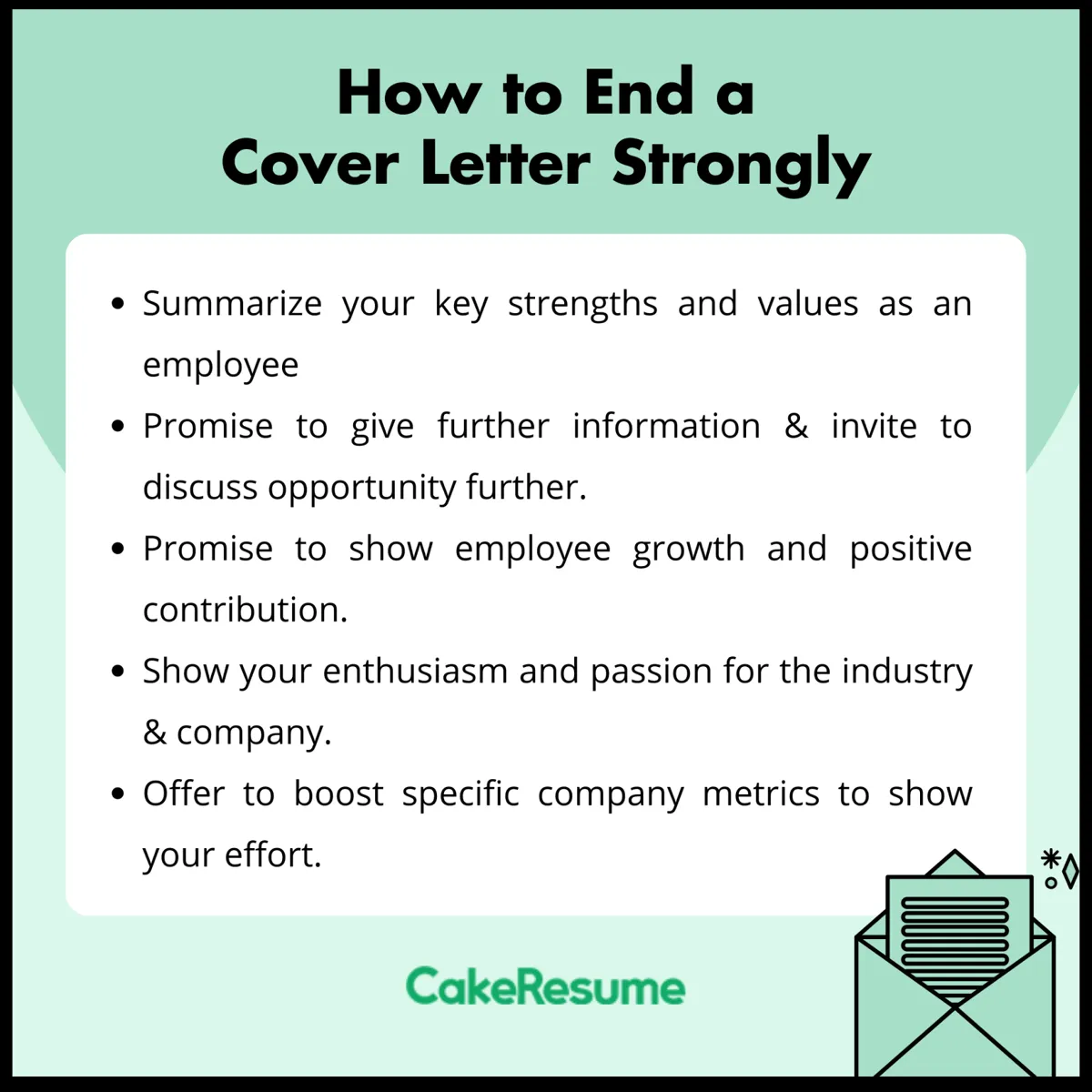
Avoid using generic closing phrases that lack personality and don’t provide any specific details about your interest in the role. Phrases like “Thank you for your time” or “Sincerely” are acceptable, but they don’t leave a lasting impression. Tailor your closing to the specific job and company, and make your closing memorable by expressing your personality and demonstrating your understanding of the company’s needs. Personalize the closing and create a stronger connection with the hiring manager.
Not Providing a Call to Action
Failing to include a call to action leaves the hiring manager wondering what the next step is. Make it clear that you are available for an interview and ready to discuss your qualifications in more detail. Use phrases like “I am available for an interview at your earliest convenience” or “I look forward to hearing from you soon to discuss this exciting opportunity.” This demonstrates your proactiveness and your enthusiasm for the position. Be direct and clearly state what you want the hiring manager to do.
Ignoring Company Culture
Your closing should reflect the company’s culture and values. Research the company and tailor your closing to align with its personality. For instance, if the company is known for its creativity, you can express your excitement about the opportunity in a more innovative way. Conversely, if the company is more formal, keep the tone of your closing professional and concise. Demonstrate that you understand the company’s culture to highlight your ability to integrate into their environment and succeed.
In conclusion, closing your cover letter effectively is a critical aspect of a successful job application. By following the tips outlined above, you can leave a lasting impression and significantly increase your chances of securing an interview. Remember to express your enthusiasm, demonstrate your understanding of the role, restate your qualifications, include a clear call to action, and proofread carefully. A well-crafted closing demonstrates your professionalism, attention to detail, and genuine interest in the opportunity.
